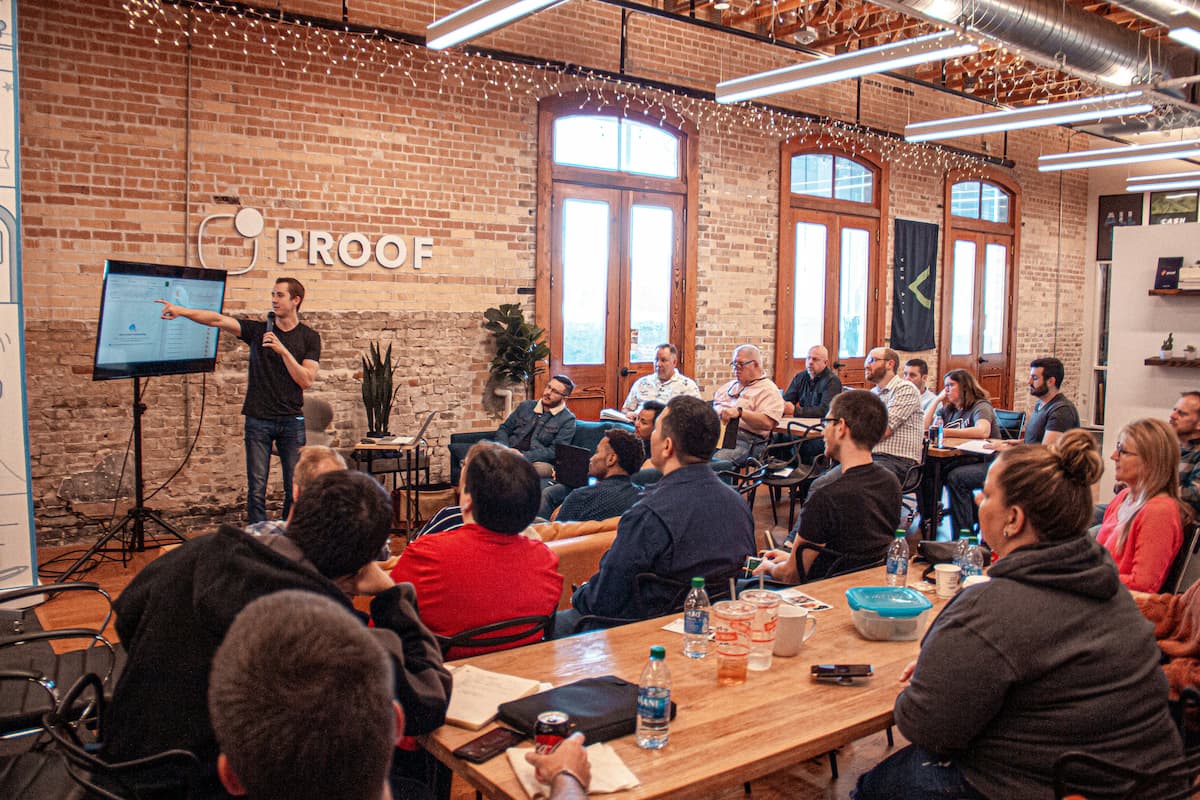In the fast-paced world of event management, ensuring a high return on investment (ROI) is critical. Whether you’re organizing a conference, concert, festival, or corporate event, every dollar spent should yield significant value.
This comprehensive guide will walk you through strategies and best practices to maximize your event ROI, helping you achieve both financial success and attendee satisfaction.
How to Calculate Event ROI
Before you can maximize your event ROI, it’s essential to understand how to calculate it accurately. ROI measures the profitability of your event relative to the costs incurred and is a key indicator of your event’s success.
Here’s a step-by-step guide on how to calculate event ROI.
-
Determine Total Revenue:
- Ticket Sales: Calculate the total revenue generated from ticket sales.
- Sponsorships: Include all revenue from sponsorship deals.
- Merchandise Sales: Factor in any additional revenue from merchandise or product sales at the event.
- Additional Revenue Streams: Account for any other sources of income, such as concessions or parking fees.
-
Calculate Total Expenses:
- Venue Costs: Include the cost of renting the venue and any associated fees.
- Production Costs: Factor in expenses for staging, lighting, audio-visual equipment, and other production-related costs.
- Marketing and Promotion: Add up all costs associated with marketing, advertising, and promotional activities.
- Staffing: Include the cost of hiring event staff, security, and any other personnel.
- Miscellaneous Expenses: Don’t forget to account for additional costs like insurance, permits, and travel.
-
Apply the ROI Formula:
- The formula for calculating event ROI is: ROI=Total Expenses/Total Revenue−Total Expenses×100
- This will give you the percentage return on your investment. For example, if your event generated $150,000 in revenue and cost $100,000 to produce, your ROI would be 50%.
-
Consider Intangible Benefits:
While the formula above gives you a financial ROI, consider also the intangible benefits, such as brand exposure, networking opportunities, and customer loyalty. These elements, though harder to quantify, contribute to the overall success and future ROI of your events.
Understanding this calculation will provide you with a clear picture of your event’s financial performance, allowing you to make informed decisions on how to improve ROI for future events.
Now let’s look at the best practices for maximizing ROI for events.

How to Maximize Event ROI
Set Clear and Measurable Goals
Before diving into the planning process, it’s crucial to define what success looks like for your event. Setting clear and measurable goals allows you to align your efforts with desired outcomes. These goals can include:
- Revenue Targets: How much revenue do you aim to generate from ticket sales, sponsorships, and merchandise?
- Attendance Numbers: What is the ideal number of attendees for your event?
- Brand Awareness: Are you looking to boost your brand’s visibility or establish your company as a thought leader?
- Networking Opportunities: How many meaningful connections do you hope attendees will make?
By establishing these benchmarks early, you can focus your resources efficiently and measure the success of your event against these objectives instead of wasting both time and money on unnecessary practices that will not benefit your goal.
Optimize Your Budget Allocation
Effective budget management is a cornerstone of maximizing event ROI. The goal is to spend only as much as required in every aspect. Here’s how to ensure your budget works for you.
- Prioritize High-Impact Areas: Allocate more funds to aspects that directly affect attendee experience, such as entertainment, speaker quality, and venue selection. These elements can significantly influence attendee satisfaction and, by extension, your ROI.
- Negotiate with Vendors: Leverage your relationships with vendors to secure better rates. Consider partnering with vendors for multiple events to gain loyalty discounts.
- Use Technology to Cut Costs: Digital tools like event management platforms can help automate tasks, reducing the need for additional staff. Platforms like Platinumlist provide integrated ticketing, marketing, and reporting features, allowing you to manage your event more efficiently.
Not sure how to get started with your event’s budget? Check out our full event budgeting guide for more details.

Leverage Data and Analytics
Data is your best friend when it comes to maximizing ROI. Utilize important data and analytics to make informed decisions before, during, and after your event to spend your budget wisely.
- Pre-Event Insights: Use historical data to predict attendance, set ticket prices, and forecast revenue. Tools like Google Analytics can help you understand your audience demographics and preferences.
- Onsite Analytics: Track attendee behavior in real-time using RFID badges or mobile apps. This data can inform decisions on-the-fly, such as adjusting the schedule or offering last-minute promotions.
- Post-Event Analysis: After the event, analyze the data to evaluate what worked and what didn’t. Use this information to refine your strategies for future events. Make sure to set up a system that will help you gather and analyze the data easily, like Platinumlist’s analytics features that provide detailed reports on ticket sales, attendee demographics, and marketing performance to help you understand your event’s performance better and calculate the event ROI more effectively.
Enhance Attendee Experience
A positive attendee experience is directly linked to higher ROI. Satisfied attendees are more likely to return for future events and recommend them to others. Here are a few ways to guarantee customer satisfaction during your events.
- User-friendly experience: Provide attendees with a user-friendly and hassle-free ticketing experience. Make sure to use a reliable system like Platinumlist that provides easy ticket purchase, seat selection, and payment options to customers for a smooth ticketing process. Remember, the ticketing system you choose will be your customers’ first touch point with your event, so choose wisely.
- Personalization: Tailor your event to meet the needs and preferences of your attendees. Offer personalized schedules, exclusive content, and VIP experiences.
- Engagement: Keep attendees engaged through interactive sessions, networking opportunities, and real-time feedback mechanisms. Gamification, live polls, and Q&A sessions can increase participation and satisfaction.
- Comfort and Convenience: Ensure the venue is easily accessible, with ample amenities like Wi-Fi, charging stations, and comfortable seating. The smoother the experience, the more likely attendees will have a positive impression of your event.

Maximize Sponsorship Opportunities
Sponsorships can significantly boost your event’s ROI by providing you with added income and awareness for your event, but it’s essential to provide value to your sponsors. Here are a few ways to secure and retain sponsors effectively.
- Targeted Sponsorship Packages: Create sponsorship packages that align with the sponsor’s goals and audience. Offer tiered options with varying levels of exposure, such as branding on event materials, booth spaces, or speaking opportunities.
- Engage Sponsors Early: Involve sponsors in the planning process to ensure their goals are aligned with your event. Early engagement also allows you to incorporate their feedback into the event, making them feel more invested in its success.
- Measure Sponsorship Success: Use data to show sponsors the impact of their investment. Provide them with detailed reports on attendee engagement, brand exposure, and leads generated. Platforms like Platinumlist can help track these metrics, providing sponsors with tangible evidence of their ROI.
Read our full guide on how to get sponsors for your event.
Implement Effective Marketing Strategies
A well-executed marketing campaign can drive ticket sales, increase brand awareness, and attract the right audience, leading to higher revenue and increased ROI. The more effective your marketing, the more money you can earn. Here are a few tips for improving your event’s marketing to increase ROI.
- Use Multiple Channels: Leverage social media, email marketing, content marketing, and paid advertising to reach your target audience. Each platform offers unique opportunities to engage with potential attendees.
- Create Compelling Content: Develop engaging content that highlights the value of attending your event. Use blog posts, videos, and testimonials to showcase what makes your event unique.
- Leverage Early Bird and Group Discounts: Encourage early ticket purchases by offering discounts. Group discounts can also attract larger parties, increasing your overall attendance.
- Partner with Influencers: Collaborate with industry influencers to promote your event. Their endorsement can lend credibility and reach a wider audience.
Learn more about marketing your event effectively with our full guide.
Utilize Advanced Ticketing Solutions
The ticketing process is a critical component of event ROI. A smooth and efficient ticketing experience can drive sales and enhance attendee satisfaction, leading to overall growth in revenue and ROI. Here are a few things to consider when selecting a ticketing system for your event.
- Seamless Integration: Use a ticketing platform that integrates with your marketing and CRM tools. For instance, Platinumlist offers an all-in-one solution that streamlines ticket sales, data collection, and marketing efforts, making the event management process not only easier but also more efficient.
- Analytics and Reporting: A ticketing system that provides real-time and detailed reports about an event’s sales, revenue, audience, and other metrics will help you track your event’s progress throughout the sales process so that you can make any necessary changes, and also help measure your event’s ROI and success and identify any shortcomings after the event.
- Mobile Ticketing: Make sure the ticketing system offers mobile ticketing options to enhance convenience for attendees. Mobile tickets are not only eco-friendly but also reduce the risk of lost or forgotten tickets.

Measure and Analyze Post-Event ROI
Once your event is over, the work doesn’t stop. It’s essential to measure and analyze your event’s ROI to learn from the experience. Here are a few things to consider after the event.
- Calculate Financial ROI: Compare your total revenue to your expenses to determine your financial ROI. Don’t forget to factor in indirect revenue, such as leads generated and future sales opportunities.
- Assess Attendee Feedback: Use surveys and feedback forms to gauge attendee satisfaction. Analyze this data to identify areas for improvement.
- Review Sponsorship Performance: Provide sponsors with a detailed report on their ROI, including metrics like brand visibility, attendee engagement, and lead generation.
- Plan for Future Events: Use the insights gained to refine your strategies for future events. Continuously improving your processes will help you achieve even higher ROI in the long run.
Maximizing event ROI requires careful planning, strategic decision-making, and a focus on delivering value to both attendees and sponsors.
By setting clear goals, optimizing your budget, leveraging data, enhancing the attendee experience, and using advanced ticketing solutions like Platinumlist, you can ensure that your event not only meets but exceeds your expectations.
Remember, the success of your event is measured not just in financial terms but in the lasting impact it leaves on your audience.
Interested in learning more about Platinumlist’s ticketing solutions? Get in touch with us below.



